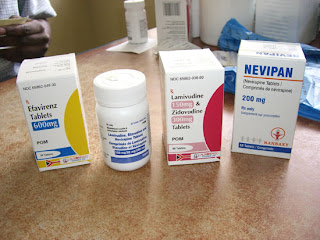- new guidelines for treating people with HIV who have uninfected partners (‘serodiscordant’ couples), recommending that antiretroviral therapy be offered to the HIV-positive partner, regardless of the strength of his or her immune system, to reduce the likelihood of HIV transmission to the uninfected partner. Up to 50% of HIV-positive people in on-going relationships are estimated to have HIV-negative partners. Rwanda and Zambia are already implementing this new policy. More than a dozen other countries say they plan to join them.
- a recommendation to consider modifying current practices to prevent mother-to-child transmission of HIV (PMTCT). Malawi, for example, now offers ARVs to all HIV positive pregnant women, regardless of the strength of their immune system, and has them continue taking the medicines for life. This not only treats HIV infected women and prevents transmission to their infants, it can also protect their partners.
- WHO currently recommends that people diagnosed with HIV start taking ARVs when the strength of their immune system drops to a CD4+ count of 350 cells/mm3 or lower. There is increasing evidence that HIV infection causes chronic inflammation, increasing the risk of other health problems, including certain types of cancers, heart disease and diabetes. The Organization is now reviewing recent studies that point to the potential health benefits of giving ARVs earlier, before the immune system starts to weaken.
2.2K
More strategic use of antiretroviral HIV medications can significantly reduce the transmission of the virus according to WHO proposals that will be presented at the XIX International AIDS Conference in Washington, DC.
Antiretrovirals reduce transmission of HIV
In 2011, a large multi-country study by the HIV Prevention Trials Network showed that antiretrovirals (ARVs) cut transmission of HIV by 96% within couples where one partner is HIV-positive and the other is not infected. A later study in South Africa reinforced these findings.
“When people take antiretrovirals, the amount of HIV in their body is decreased, making them much less likely to pass the virus to others,” says Dr Gottfried Hirnschall, Director of the HIV Department at WHO. “If we can get, and keep, more people on treatment, and reduce their virus levels, we can reduce the number of new people who are infected.”
Strategic use of antiretrovirals
On the basis of this evidence, WHO advice for more strategic use of antiretrovirals includes:
source: WHO
previous post



